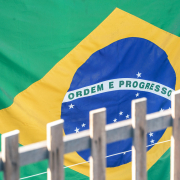The National Service of Health and Food Quality (Senasa) of Argentina has expanded its list of agrochemicals that can be applied in the management of ‘minor crops’. Resolution 829/2018 establishes the extension of the use of products already registered for pest control for crops of lesser economic interest, such as fruits and vegetables.
The objective of this expansion, explains the Senasa, is to reduce problems faced by producers, who do not easily find authorized phytosanitary products and must use agrochemicals destined for other crops, or even illegal chemicals. Resolution 829/2018 of Senasa lists which products are currently used in major crops and can be used to treat minor crops.
The legislation, signed by the president of Senasa, Ricardo Negri, and published in the Official Gazette in November, also establishes those procedures that a company must follow to request an extension use of agrochemicals already registered in the country. Another purpose of the list is to establish MRLs – the Maximum Residue Limits for these use of these pesticides on minor crops.
Among the minor crops are citrus fruits, pome fruits, stone fruits, red fruits and other small fruits, various subtropical fruits, vegetables, cruciferous fruits, vegetables, cucurbitaceae, roots, flowers, cereals and pseudocereals, including seeds with starch that do not belong to the class of cereals and do not contain glutens, such as amaranth and quinoa, nuts, oilseeds, herbs and teas.
Source: Agropages

